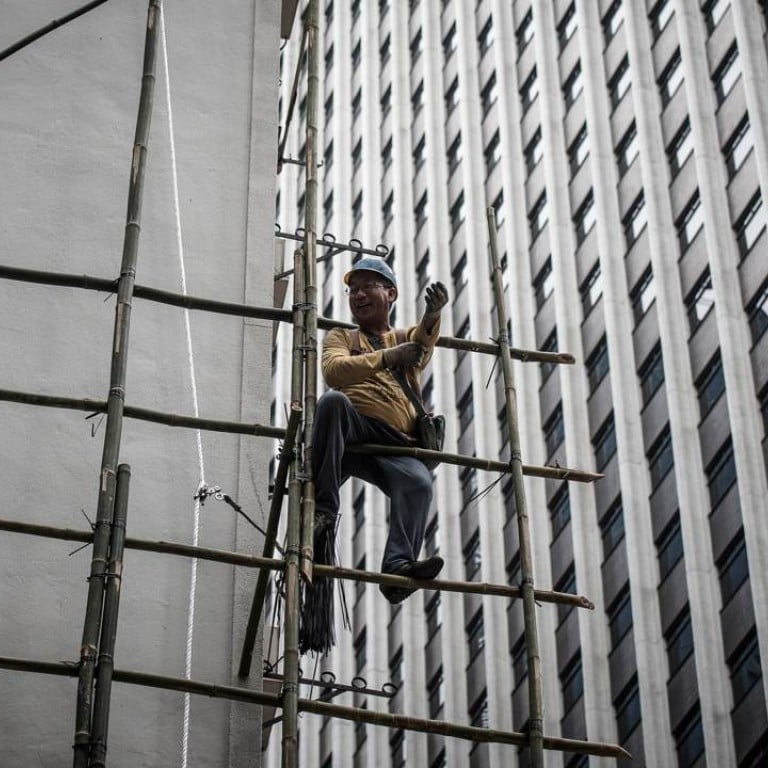
Hong Kong employers are failing to provide basic protection and benefits for their workers
Albert Cheng says the business lobby’s aggressive opposition to a proposal that would increase their obligations only brings home a reason for the lack of retirement protection for employees
The government’s attempt to shed its responsibility to introduce a universal retirement scheme again highlights the lack of even basic protection for the working population in Hong Kong, especially those on a low income. The upcoming consultation on retirement protection is nothing but posturing, devoid of real commitment.
READ MORE: ‘Universal’ not the burning issue for a Hong Kong retirement protection scheme, Carrie Lam says
Even Professor Nelson Chow Wing-sun, who was commissioned by the government to conduct a study on retirement protection, has said he was disappointed with how the consultation document is being framed.
READ MORE: Hong Kong’s bosses double down on battle against plans to reform MPF pension’s offset mechanism

It is naive to assume that passing the buck to the government would take away the burden on employers
It is regrettable that the former vice-chancellor of the Chinese University of Hong Kong and prominent economist Lawrence Lau Juen-yee has lent his support to the business community on the offsetting issue. Professor Lau recently addressed a seminar that was co-organised by the Business and Professionals Alliance for Hong Kong with the purpose of applying pressure on the government. He said severance payments were effectively an unemployment insurance, and suggested that social security modelled after the US system should be introduced instead; but he saw it as a responsibility of the government only.
It is naive to assume that passing the buck to the government would take away the burden on employers. Someone has to foot the bill. Sooner or later, the government would have to tax businesses to fund the benefits. More importantly, the fundamental principle is that severance or long-service payments serve a different purpose from that of MPF or retirement protection.
READ MORE: Hong Kong’s Mandatory Provident Fund

READ MORE: Hong Kong trade unions and business at odds over abolition of provident fund offset mechanism
Workers in Hong Kong have long been disadvantaged. The post-war economy of Hong Kong was built on the basis of low wages and exploitation. During the colonial days, there were no benefits or social security to speak of until the 1967 riots forced a government rethink and it started basic housing, social and education programmes. In the run-up to 1997, legislation for collective bargaining was approved but was swiftly abolished after the handover. The proposed central provident fund was watered down to become the lame MPF scheme we have today. And after years of discussions, the minimum wage finally came into effect in 2011, but not without scaremongering by employers that it would cause massive business closures and job losses – which have not happened. The regulation of working hours is also a non-starter because of the strong opposition by the business sector. The list goes on.
In short, Hong Kong is lagging seriously behind other developed economies in providing basic protection and benefits for workers.
Capitalists and workers need each other for an economy to function properly. This is particularly relevant to Hong Kong because we are a service economy. Our success relies on people. A retirement protection scheme funded by contributions from employers, employees and the government is reasonable and workable. If our capitalists continue to refuse to shoulder their basic responsibilities, they will be sowing the seeds for social discontent and instability.
Albert Cheng King-hon is a political commentator. [email protected]

